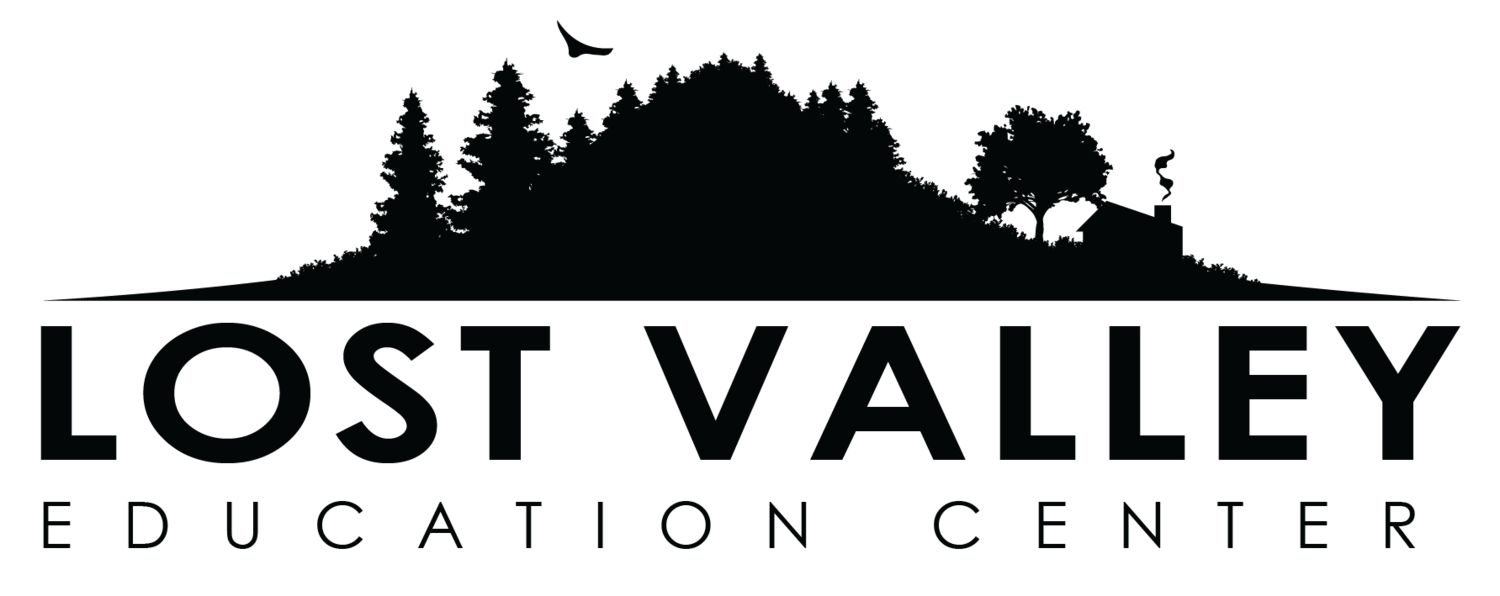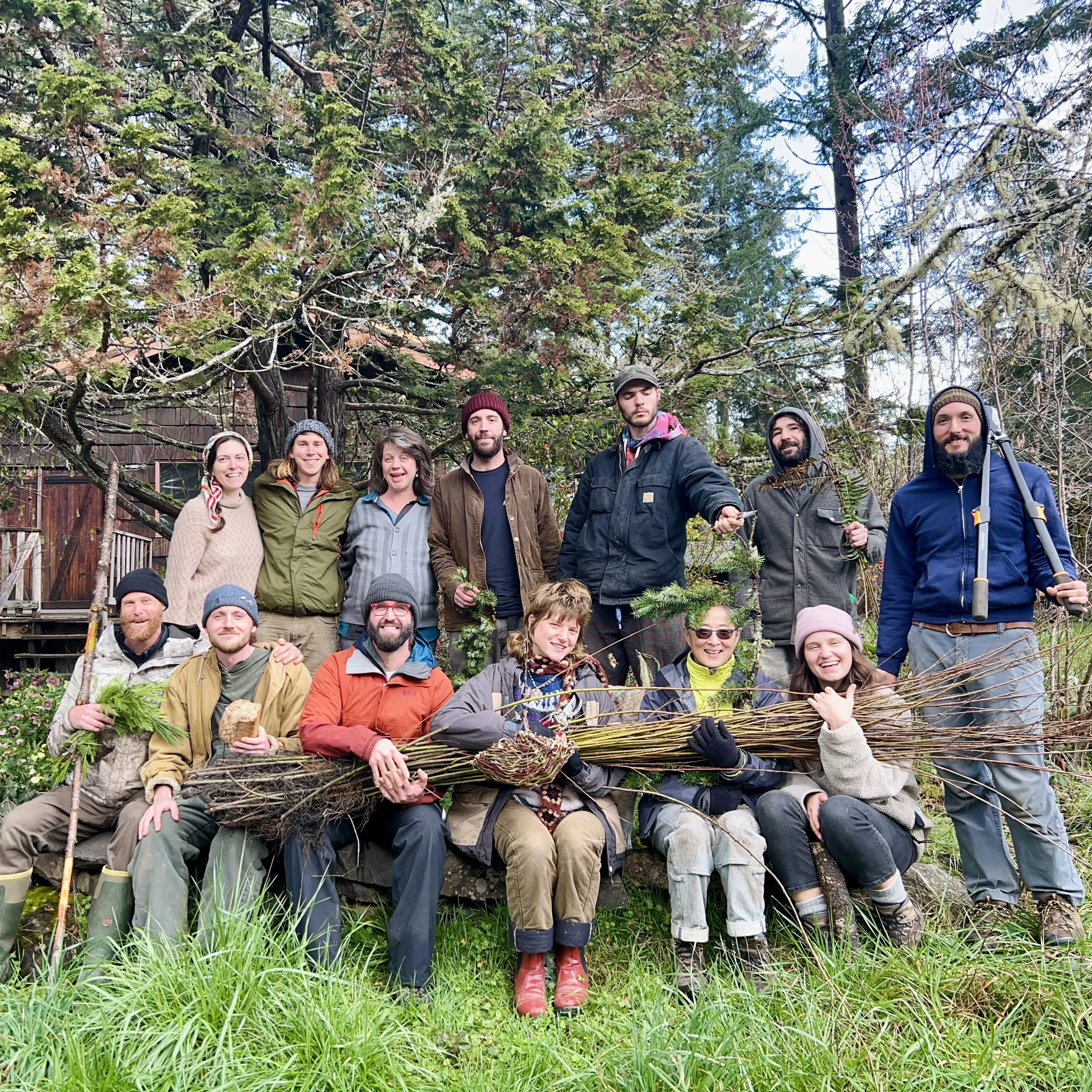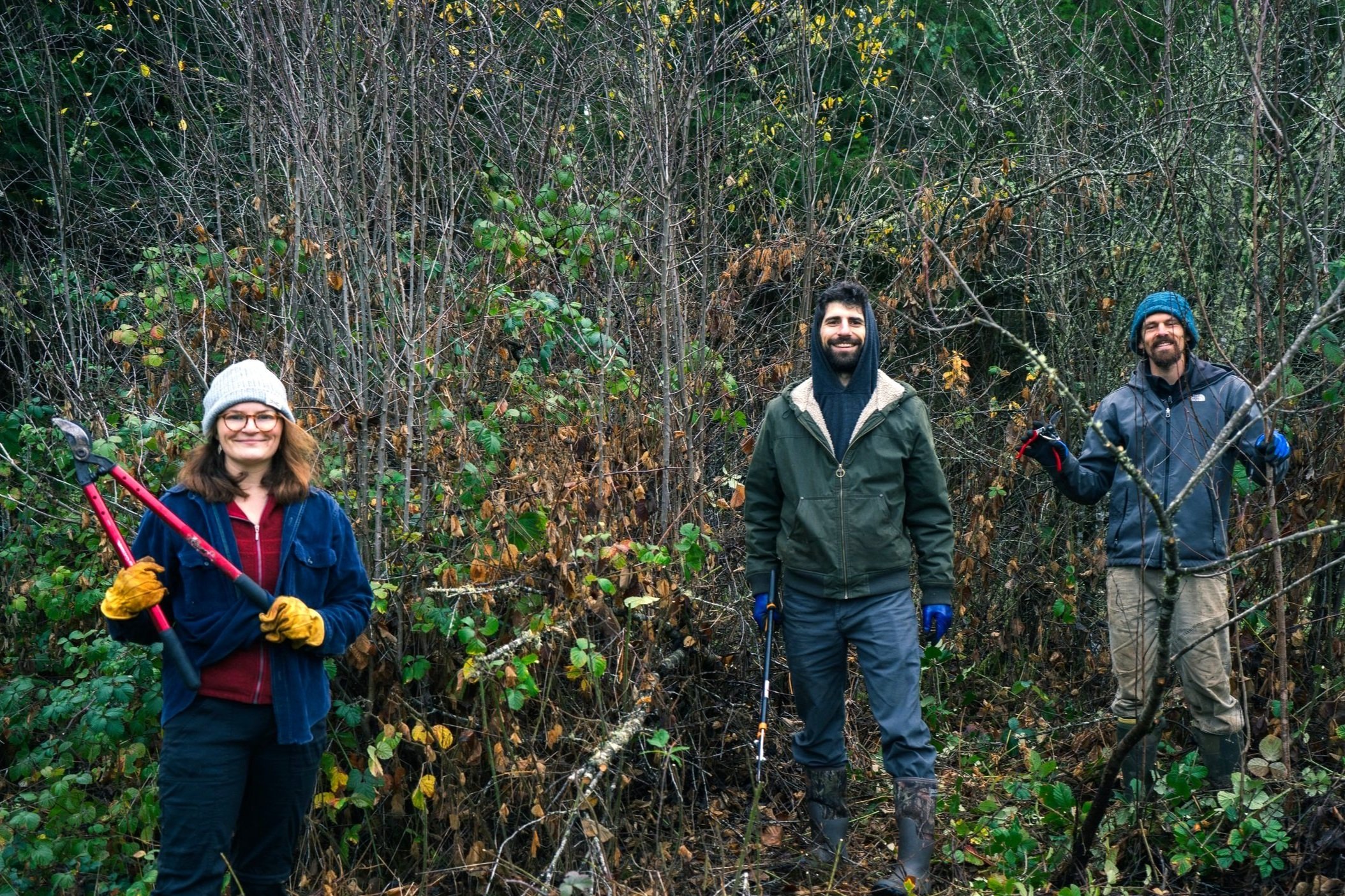
Social Forestry Camp
In Partnership With
Module 1: the Tao of Forestry
February 20 - 23, 2026
Come join us as we deepen our roots into the infinitely generous soils of Mother Earth, tapping the ancestral and Indigenous wisdom that lives within the cells of our collective organism, just as we tap the elixir of the Maples to bring just a little more sweetness in to our lives. During this extended weekend together, we will practice somatic forestry and re-sensitize ourselves to the subtle teachings of the natural world, tending the land as an essential part of our extended community. We will engage in a variety of hands-on activities and crafts, catching songs and crafting stories, as we weave, work, and play through the forest of our collective healing.
Module 2: Social Forestry Extended Camp Out
February 23 - 27, 2026
Stick around to build new friendships and strengthen existing bonds as we continue our work on the land, learning through our hearts and hands, brains and bones, sharing knowledge and lore in a collaboratively crafted experience of daily activity and integration within the forest gardens, woodland and oak savanna of Lost Valley’s Nature Sanctuary.
Join us for one or both modules guided by Lost Valley Land Steward and Permaculture Teacher, Brian Byers and Nature’s Mystery Founder, Nathaniel Nordin-Tuininga.
Our Social Forestry Camp Framework was inspired by Hazel Ward of Siskiyou Permaculture and author of Social Forestry, Tending the Land as People of Place. Our camp also draws influence from permaculture and Indigenous Land tending practices from our bioregion.
What is Social Forestry?
Social Forestry is a way of caring for the land that recognizes the sovereign rights of the more-than-human world. It is a framework for culture tending that weaves ecological stewardship with ritual, seasonal work, and place-based living.
We recognize our place in the web of life with the humility of our station in relationship to the ancient Trees, Mosses, Fungi, and other relatives who have populated this world since long before our human ancestors first emerged. We know that we still have so much to learn from the forest ecosystems that are calling out for our careful attention in this very moment.
At Lost Valley, we are excited for the opportunity to deepen our observation and interactions, as together we find our way back to right relationship with our relatives of the past, present, and future generations.
With great gratitude to the Winefelly band of the Kalapuya and all those who have tended this land before us, and with care for those who will continue to do so after we have gone, we invite you to join us for our Social Forestry Camp.
The goal of this camp is to build a culture of ecological literacy, social connection, and leadership skills for the regeneration of our watersheds, forests, oak savannas, and human communities.
The camp has a sliding scale to provide greater accessibility for all who wish to learn with us in this way.
On 87 acres of regenerating forest, oak Woodland, Meadow, and meandering Streams; come and Deepen your relationships with:
PNW Forest Ecology
Restoration Forestry
Agroforestry
Coppice Management
Biochar Generation & Activation
Soil Health
Watershed Regeneration
Plant Propagation
Sustainable Timber Harvesting
Community Land Tending and Connection
The More-than-Human World
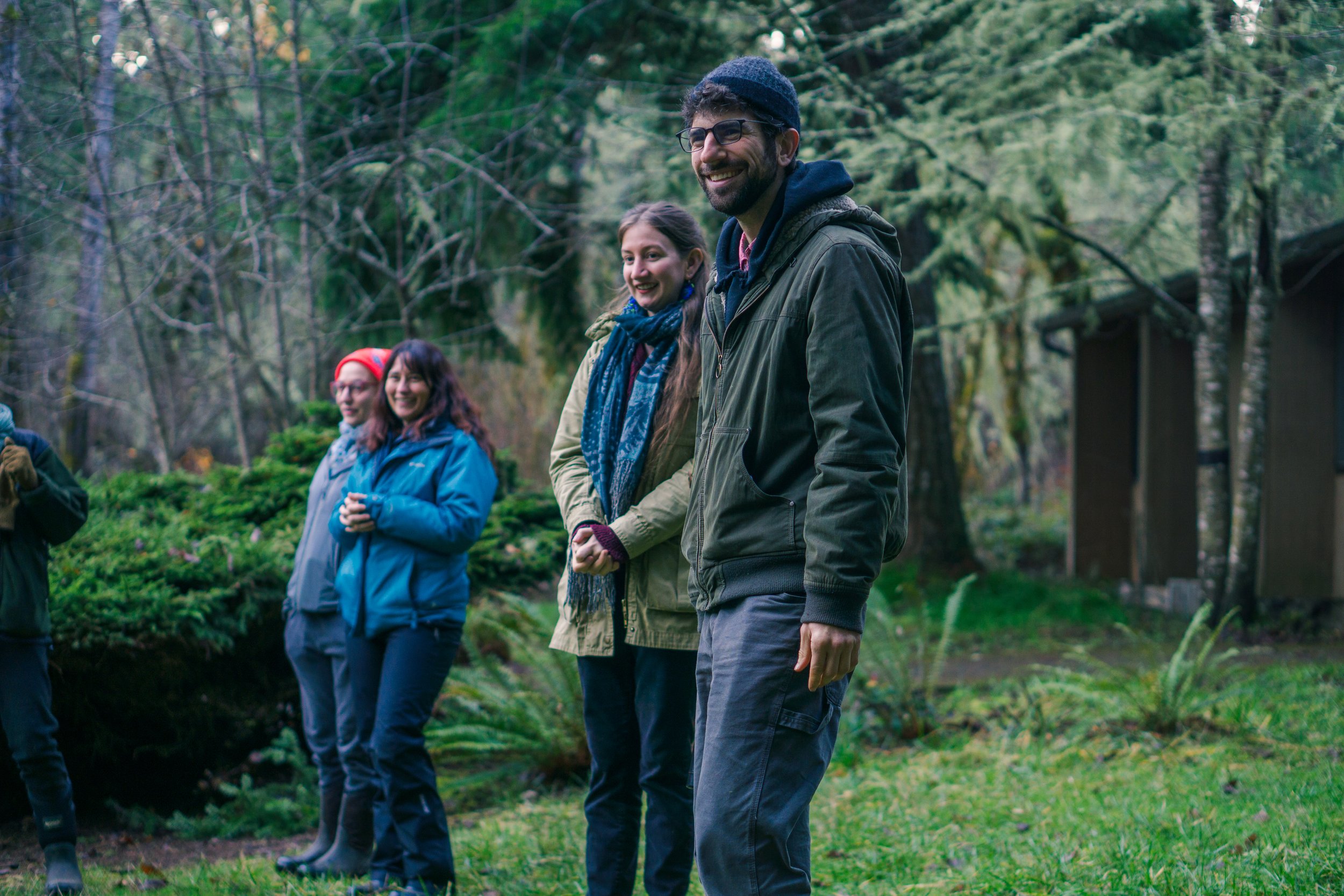
Daily Schedule:
Participants are welcome to arrive between 3:30-4:30 on Friday. The following days will begin at 10 AM with gratitude, honoring the land and each other through connection and play, before we set out for the day’s activities. We will break for lunch and continue our exploration of forest tending and relating until dusk. After dinner activities will include sharing of stories and music around the fire, allowing for co-creation and flow to emerge organically from the group. Night hiking, stargazing, performance, movement and dance are among the many opportunities available for exploration. We will wrap up camp around noon on Monday.
Our time will be divided between a dynamic balance of reverence and revelry with deep nature connection games and activities (forest meditation, tracking, native plant identification, aidless navigation, etc.), education (ethical wildcrafting, ethnobotanical awareness, soil and stream restoration, etc.), and communal land tending projects (forest tending, agroforestry, charcoal making*, trail blazing, etc.)
Skill building will include ecological surveying, timber stand assessment, restoration forestry, biochar production*, reintegrating fire ecology*, watershed restoration, agroforestry, building a forestry toolkit, coppice management, sorting and grading materials, creating regenerative culture through art, song, and stories, tending the oak savanna, accessing conservation funding and more.
(There is a bountifully flowing creek for those who want to wake up a little earlier with an exhilarating plunge in our swimming hole!)
*Please note that this is a fully-immersive land tending and culture-building camp, not a classroom-focused course. Our time together will be shared outside learning from the elements that nourish and guide our hands and hearts (Fire, Water, Earth, Metal, Wood, Air, etc).
food:
To keep costs down and allow for greater accessibility we will not be charging for food. Breakfast and lunch will be on your own, and our outdoor kitchen can be used for meal preparation. Dinner will be prepared communally and eaten together. Please bring organic and/or locally wildcrafted food to share to the degree that you are able. We welcome wild and ethically raised animal products. If you have dietary restrictions, please let us know so that we can plan accordingly.
Gear:
Please come prepared for all weather conditions; everything from freezing/snow to 70+ degrees is possible in mid-February . We will be outside for most of the camp so having good waterproof raingear is essential. Waterproof shoes/boots are especially important. Wool layers and a good hat are also highly recommended.* You may also want to bring a day pack as we will often be ranging far from base camp, and you will likely want easy access to potable water and snacks as we work, learn, and play together in rain and sunshine!
Some of our Savanna and Woodlands are protected by what we lovingly refer to as Guardian (aka “poison”) oak onsite. We will teach those who are not familiar how to identify it without leaves (it is pretty easy to avoid once to you learn how to look). However, if you have especially sensitive skin, as many of us do, we have an abundance of natural clay (nature’s best medicine for removing oils) available for treatment. If you prefer to use store-bought poison oak soap, or other products, you will have to bring your own. Having extra clothes for working in areas with Guardian oak will be useful. There are shower and laundry facilities onsite if needed.
*Fire resistant clothing is also very important for making biochar and doing small-scale cool burning if the weather allows. Synthetic materials will melt easily; cotton is better; wool, leather, and oilcloth are all superior.
The following tools are essential;
if you cannot bring them let us know and we can loan you tools for the duration of the camp (limited quantities available):
Work gloves
Hand pruning shears (Felco or equivalent)
Handheld pruning saws (the Pocket Boy Saw or equivalent)
Pocket knife
We encourage you to bring the following tools if you have them:
Forest axe
Hatchet
Logging saw
Loppers
Broad knife
Draw knife
Woodworking knives
Basketry Knives
*Please note we will not be using power tools such as chainsaws during the camp.
The following tools may be useful if you have them:
Binoculars
Tree/plant/fungi/bird/animal track identification books
Small folding chair
Please do not bring your phone or other electronic devices, unless absolutely necessary.
Tiered Pricing
As a 501(c)3 environmental non-profit education center we are deeply committed to the work that we do! For decades, our stewards, staff and teachers have worked well below market rate and volunteered countless hours of community service, including organizing and hosting our education courses, to further our vision and mission of bringing us all into deeper relationship with one another and the more-than-human world. We are honored to support those with limited financial resources in accessing the unique educational opportunities we offer here at Lost Valley. As the economy shifts and our expenses increase, we are hopeful that those who have the means will help move our non-profit to a place of greater economic abundance, so we can meet our most basic needs and continue to invest in the upkeep of critical infrastructure and accessible education for our greater community.
Single Module:
Community Supported $125 - This tier is offered in recognition that our dominant economic system often neglects to provide a living wage to those of us who are most deeply invested in serving our communities. We the staff and stewards of Lost Valley want to acknowledge that we are all in this together. We will continue to provide accessible quality education offerings to all those who are truly dedicated to the path of mutual upliftment.
Community Sustaining $250 - This tier provides a more equitable exchange of financial support for the hardworking stewards of our land and community and allows us to continue to bring in exceptional outside teachers, while still covering our most basic institutional costs of operation.
Community Regenerative $600 - This tier helps support our staff and teachers and allows us to invest more into the regeneration of our land and education center, as well as to help cover the cost for more economically marginalized participants. We are deeply grateful for any additional financial support to help us further the mission and goals of our Education Center.
*Pricing options include camping accommodations. Individual dorm rooms are available at an additional 10% course fee.
Both Modules:
Community Supported $200
Community Sustaining $400
Community Regenerative $1200
*Pricing options include camping accommodations. Individual dorm rooms are available at an additional 10% course fee.
Scholarships and Work Trade Options Available
We're excited to announce new scholarship opportunities for members of marginalized communities in Lane, Linn, and Benton counties. Thanks to a generous grant from the OHA Public Health Equity Grant, we can offer financial support to help make our programs more accessible.
Please inquire at admissions@lostvalley.org for more information about scholarship and work trade opportunities.
Cancellation policy
If a participant withdraws from the camp for any reason:
Full refund up until 7 days before the camp start date, minus a $25 processing fee
50 % refund 7 days up until the camp start date, minus a $25 processing fee
No refund once camp has started
For questions please email admissions@lostvalley.org
Thanks for being a part of this necessary global change!
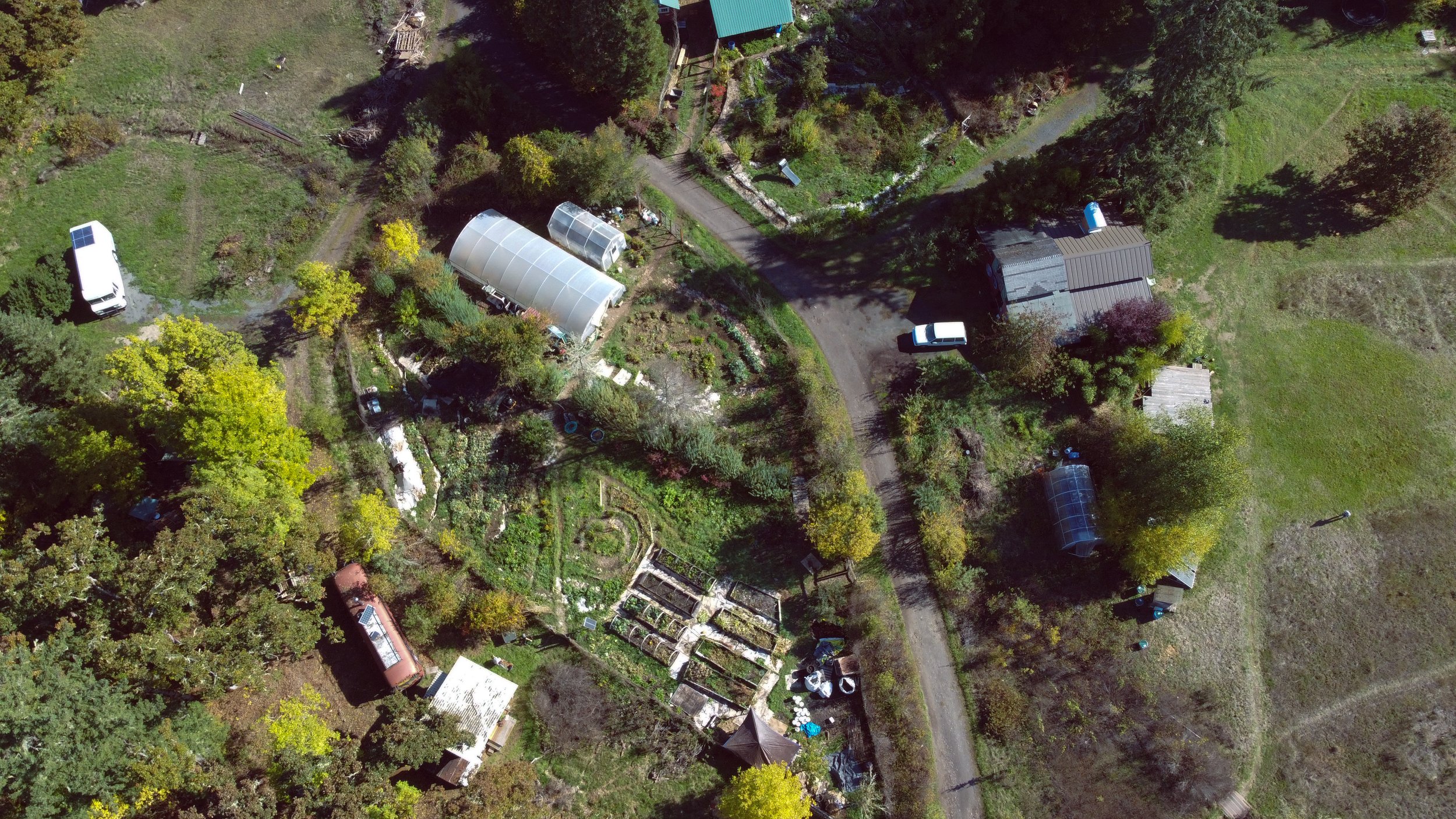
Subscribe to Our Newsletter

